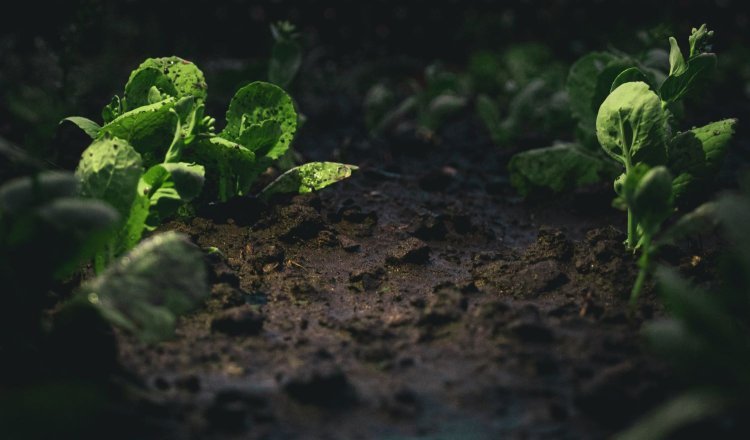Hydrochloride Compounds: Safe Application and Benefits in Crop Protection
Hydrochloride compounds are critical in modern agriculture, providing practical and targeted pest and disease control solutions. These compounds are prevalent due to their high efficacy, broad-spectrum application, and environmentally considerate profile. This article discusses the safe use of hydrochloride compounds in agriculture, their numerous benefits, and why they remain indispensable for farmers worldwide.
Safe Application of Hydrochloride Compounds
Safety is paramount when applying hydrochloride-based products in agricultural settings. Proper usage ensures optimal efficacy, minimizes health risks to applicators, and reduces potential harm to the surrounding environment.
Essential Safety Practices
- Personal Protective Equipment (PPE): Farmers and applicators should use PPE, such as gloves, masks, and goggles, to prevent skin contact and inhalation during handling and application.
- Correct Dosage and Precision: Following recommended dosages is essential to avoid crop damage and potential toxicity. Precision sprayers and application equipment help ensure the product is delivered where it is most needed.
- Environmental Safeguards: Preventing runoff into nearby water bodies and minimizing application in non-target areas is critical to protecting ecosystems.
Advantages of Hydrochloride Compounds
The benefits of using hydrochloride compounds extend beyond mere pest control; they enhance agricultural productivity and play a role in sustainable farming practices. For instance, Cartap Hydrochloride is a widely recognized insecticide that provides broad-spectrum pest control while contributing to integrated pest management (IPM) strategies.
Key Benefits:
- Enhanced Efficacy: Hydrochloride compounds improve the absorption and bioavailability of active ingredients, resulting in better performance.
- Broad-Spectrum Control: They target various pests and diseases, making them versatile tools for crop protection.
- Sustainability: Many hydrochloride-based products fit into environmentally-conscious farming programs, reducing the need for excessive chemical inputs.
Why Choose Cartap Hydrochloride?
Cartap Hydrochloride is known for its ability to effectively target a wide range of crop-damaging pests. It disrupts insects' nervous systems, leading to paralysis and death. This action makes it highly effective for combating infestations of rice stem borers, leaf folders, and more.
Benefits of Cartap Hydrochloride
- Long-Lasting Efficacy: Cartap Hydrochloride provides extended protection, reducing the need for multiple applications throughout the crop cycle.
- Broad Pest Control: It targets both chewing and sucking pests, making it highly versatile for use across different crops such as rice, vegetables, and cotton.
To supplement insect control with effective fungal disease management, consider purchasing craze 50-cartop hydrochloride 50% SP. Hexaconazole 5% SC offers robust, eco-friendly protection against fungal infections, aligning with integrated crop management and sustainable farming goals.
Supporting Sustainable Agriculture
The adoption of hydrochloride-based solutions supports sustainable farming by balancing effective pest control with environmental stewardship. Many of these products, such as Cartap Hydrochloride, have low toxicity profiles for non-target organisms, reducing ecological harm while maintaining crop productivity.
Role in Integrated Pest Management (IPM)
Hydrochloride compounds are integral to Integrated Pest Management (IPM) strategies due to their ability to:
- Minimize Resistance Development: By rotating with other classes of chemicals, they reduce the risk of pests developing resistance.
- Selective Action: These compounds often target specific pests while sparing beneficial insects, which helps maintain the ecological balance.
Uses of Hydrochloride Compounds in Agriculture
The versatility of hydrochloride compounds extends beyond insect control. They are also widely used as fungicides and herbicides to manage diseases and weeds. These products often combine effectiveness with ease of application, making them indispensable tools in the agricultural sector.
Example of Hydrochloride-Based Solutions
- Cartap Hydrochloride: It is an insecticide known for its effectiveness against chewing and sucking pests. Its long-lasting action makes it famous for rice, vegetables, and cotton crops.
- Fungicides: Hydrochloride-based fungicides improve crop health by providing long-lasting protection against common plant diseases.
Cartap Hydrochloride in Action
Farmers worldwide have attested to Cartap Hydrochloride's efficacy in their crop protection programs. For instance, a rice farmer dealing with stem borer infestations found that using Cartap Hydrochloride significantly reduced pest levels, improving crop yields and healthier harvests. Such success stories highlight the real-world impact of hydrochloride-based crop protection products.
Ensuring Environmental Safety
The use of hydrochloride compounds requires attention to environmental safety protocols. This helps protect non-target species and reduce potential harm to ecosystems.
Practical Tips for Environmental Safety
- Buffer Zones: Establishing buffer zones around water bodies can prevent accidental runoff and reduce contamination risks.
- Proper Storage: Safe storage of hydrochloride compounds ensures they remain effective and do not harm unintended targets.
Using Cartap Hydrochloride 50% SP for Optimal Crop Protection
Cartap Hydrochloride, 50% SP, is a famous formulation that effectively controls insect pests. Proper usage entails:
- Accurate Dosage: Following recommended application rates ensures safety and efficacy.
- Rotation with Other Products: This prevents resistance buildup and ensures long-term pest control success.
Hydrochloride compounds, especially Cartap Hydrochloride, continue to shape modern agriculture by offering adequate and safe pest and disease management solutions. By using these products responsibly, farmers can protect their crops, enhance productivity, and contribute to sustainable agriculture for future generations.
What's Your Reaction?
















